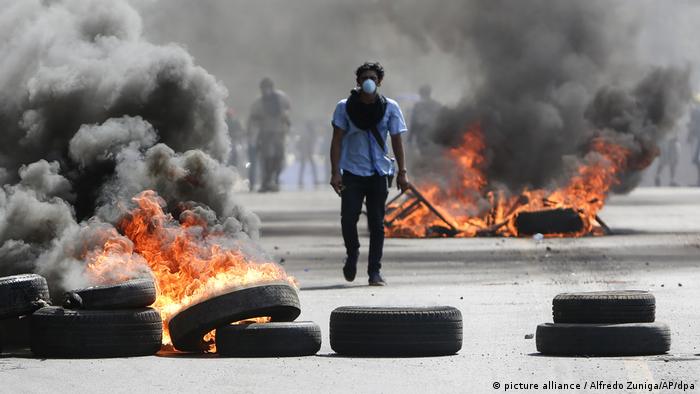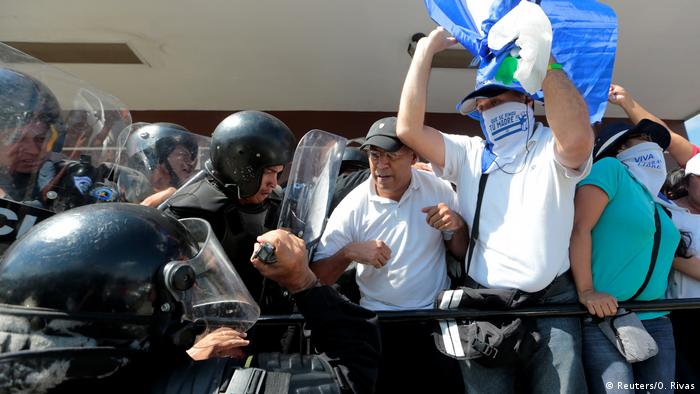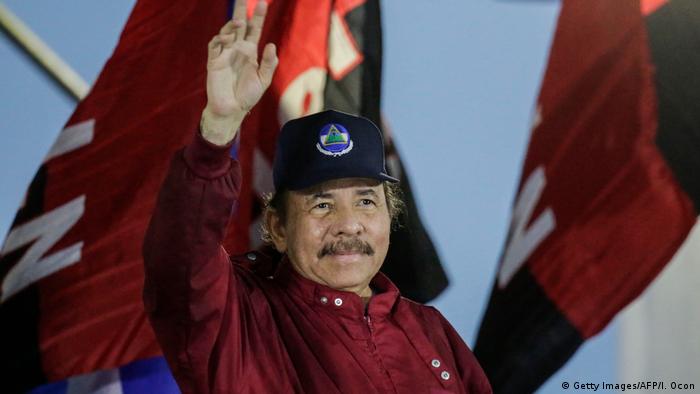For the past six months, Nicaragua is located in the state of exception. A broad social Alliance wants to negotiate over elections, but the authoritarian President Daniel Ortega is clinging to Power.

Managua: protests after the fire, in nature, in the Indio Maiz reserve in April 2018
It all started at the beginning of April with a fire in nature, in the Indio Maíz reserve in the South-East of Nicaragua: for weeks, the flames raged in the protection area, without the government to get the fire and the destruction of valuable nature, would have avoided the area, criticized Amaru Ruiz, the Chairman of the Nicaraguan environmental organization Fundación del Río. Students from the capital city showed solidarity with the environmental activists and demonstrated for the rescue of Indio Maíz. Finally, it was the rain that put out the flames, but the anti-government protests have quickly become the area of a fire, the until today has not stopped.
The fire was in the nature only the last trigger, the popular anger needed to reserve, together with the pension reform in April, which drove the people on the street. Although the government withdrew the Reform, but the protests continued. The discontent runs deep in Nicaragua. “It’s all about the neoliberal economic model of the country, from which only the large companies and foreign investors benefit,” says environmental activist Ruiz. “Add to that the intransparent and unfair elections, is not respected in the case of which the will of the people.”

Protests against President Ortega in Managua
Daniel Ortega, who has ruled the country since 2006 – after the successful Revolution, he was from 1979 to 1990, chief of the government, Nicaragua has not been transformed in the past few years in an authoritarian state, in which the President not only controlled the three branches of Government, but also important institutions with his supporters occupied.
Government is trying to gain time
In view of the ongoing protests, which were suppressed by paramilitary and state security forces, by force, the government agreed to the inclusion of a national Dialogue with the “Alianza Civica por la Justicia y la Democracia”, which was moderated by the Bishop’s conference. The “Alianza Civica” consists of representatives of various sectors of society, selected by the Catholic bishops. “It was about two basic demands: justice for the victims of the Repression and the democratisation of the country,” says a Nicaraguan journalist who wants to remain anonymous. “But with time we have understood that Ortega did not want to negotiate. It was only a matter of gaining time to organize its apparatus of Repression better.”

Clinging to Power: President Daniel Ortega
However, the national dialogue remained without result, and the crisis has come to a head. More than 300 people have been killed, according to the inter-American Commission on human rights (IACHR) since the beginning of the protests (as of the end of August). Under the continuing protests and the tense security situation suffers, the economy: thousands of Jobs have been lost in the past months, the transport of goods in the transit country of Nicaragua is very limited. Many Nicaraguans inside and Nicaraguans have left the country due to the difficult situation and fled, mainly to neighbouring Costa Rica.
Opposition calls for new elections
At the beginning of October has now established the “Unidad Nacional Azul y Blanco”, a broad social Alliance of more than 40 political and social organizations, the “Alianza Civica” is a member of. “The goal is to develop for the whole country, a common strategy,” says the Nicaraguan journalist. “We need a peaceful solution to the conflict, leading to early elections.”
Whether President Ortega is involved, however, is doubtful. Because even though he has led the country in the past few months, in international Isolation, and he rather to stronger Repression than of the Power, and blamed foreign forces for the Chaos in the country. The Nicaraguan journalist believes: “Since April, people have been murdered across the country, and the murderers running around free,” says the journalist. “The most difficult task is yet to come: not only the disarmament of the paramilitaries and the reorganization of the police and the army, but the healing of the wounds in the society that has experienced so much pain and violence.”